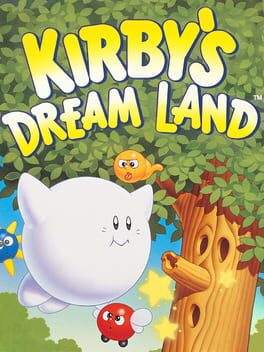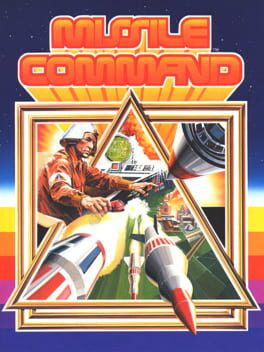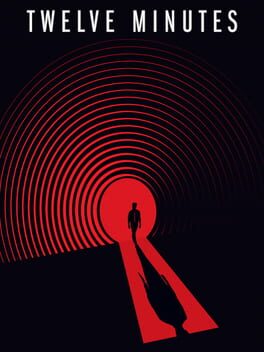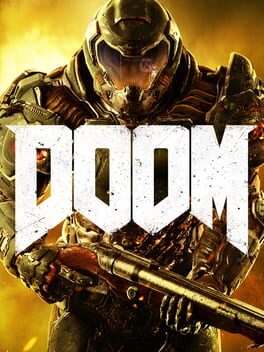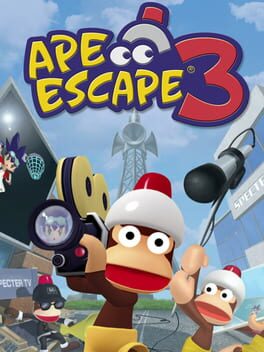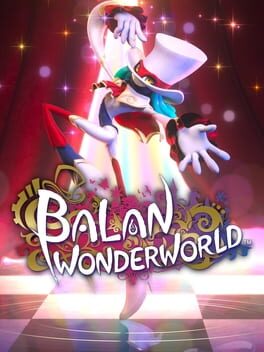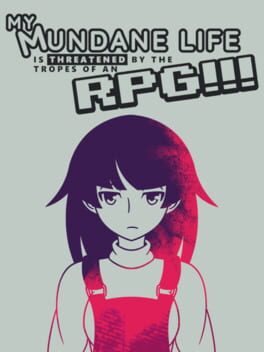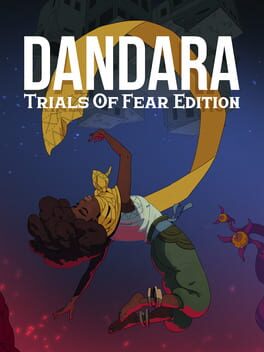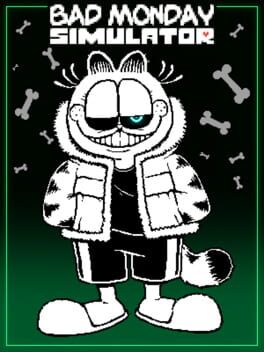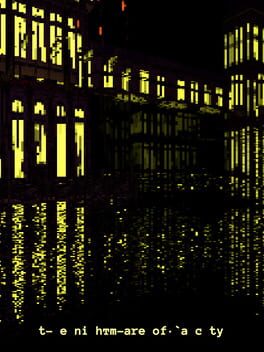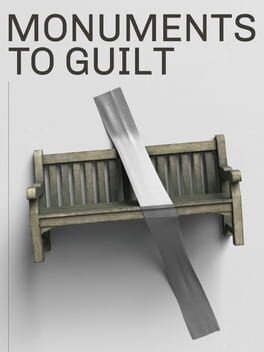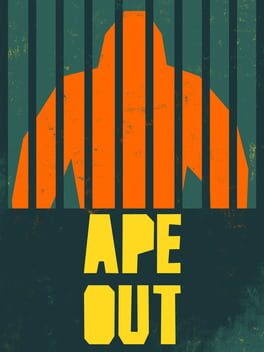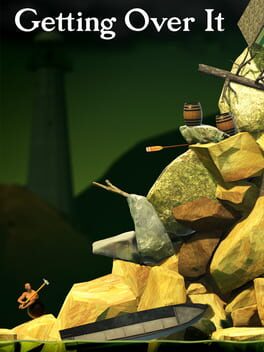rikutomysora
1992
None of the 2D Super Mario titles have been able to capture that sense of pure discovery and joy that New Super Mario Bros gave me when I was 6. That is, until Wonder. Wonder is one of the best games on the Switch, and one of the best games Nintendo has ever put out. Every level sings with creativity, every challenge is enticing and fun, and the different power ups and badges add a lot of freedom to the experience. At a certain point, you just have to wonder how they did it. It’s a really wonderful experience.
1980
2021
I'm kind of shocked that this game has mostly negative reception. It's quite an inventive experience that takes a tried and true storytelling trope into the realm of the suspense thriller. Less Groundhog Day, more Vertigo.
This game is not optimized well for iOS, which made the experience a bit worse for me, but I could get over it. Every time I tried to use the item menu, I would pull down the notification center on my phone, which would pause the game and exit out of the item menu. It was frustrating but not game-breaking. I wish I played it on PC, but whatever.
The voice acting is phenomenal, though James McAvoy and Daisy Ridley are nigh unrecognizable with their American accents. I think that Ridley's starring role as Wife was the better of the two performances by far. But Willem Dafoe, as always, steals the spotlight with every single line of dialogue. I thought the narrative was very well done, though I must admit the big twist isn't very well-telegraphed and kind of came out of nowhere. Still, I gasped when I made the connection. It was a real gut punch that I don't normally get with anything anymore. That alone is worthy of praise.
Gameplay-wise, some of the puzzles are a bit obtuse. I never even thought to turn the bedroom light on, then off, then on again, and that's a crucial part of the progression. Nothing tells you that that's what you're supposed to do, and it was one of the few things I had to look up. I also had to look up the final action to get the ending, which was even more obtuse than the light switch. At least with the light switch, I can see you maybe coming across it by accident. But the ending? No way anybody came across it organically.
I had quite a few "a-ha!" moments, though. Stuff like putting the sleeping pills in the water, using the knife to pry open the vents, and proving the time loop to Wife with the thunderstorm. When it works, it works. It just doesn't always work.
This game is not optimized well for iOS, which made the experience a bit worse for me, but I could get over it. Every time I tried to use the item menu, I would pull down the notification center on my phone, which would pause the game and exit out of the item menu. It was frustrating but not game-breaking. I wish I played it on PC, but whatever.
The voice acting is phenomenal, though James McAvoy and Daisy Ridley are nigh unrecognizable with their American accents. I think that Ridley's starring role as Wife was the better of the two performances by far. But Willem Dafoe, as always, steals the spotlight with every single line of dialogue. I thought the narrative was very well done, though I must admit the big twist isn't very well-telegraphed and kind of came out of nowhere. Still, I gasped when I made the connection. It was a real gut punch that I don't normally get with anything anymore. That alone is worthy of praise.
Gameplay-wise, some of the puzzles are a bit obtuse. I never even thought to turn the bedroom light on, then off, then on again, and that's a crucial part of the progression. Nothing tells you that that's what you're supposed to do, and it was one of the few things I had to look up. I also had to look up the final action to get the ending, which was even more obtuse than the light switch. At least with the light switch, I can see you maybe coming across it by accident. But the ending? No way anybody came across it organically.
I had quite a few "a-ha!" moments, though. Stuff like putting the sleeping pills in the water, using the knife to pry open the vents, and proving the time loop to Wife with the thunderstorm. When it works, it works. It just doesn't always work.
2016
2005
2021
I want to preface this by saying that making a video game is a tough process regardless of the scale you're working at. Programming is hard, writing is hard, animating is hard, et cetera. A lot of work went into this game, and as far as I can tell, it's developer AsleepOnStream's first game ever. So I want to start with what I liked about the game and then go into some constructive criticisms.
First of all, I enjoy the premise. It's almost like a reverse isekai, where the adventure comes to the protagonist and not the other way around. I think the characters work well for what they are, mostly archetypes. You have the tsundere, the stuck-up boss, the tired service worker, the creepy guy, the happy-go-lucky sidekick. They all do a good job of providing interesting dynamics for the world since they're so different. I also like the animations that precede each chapter of the game, particularly the Kamen Rider send-up. The music was also well-done, and each track incorporated recurring motifs that added life to the game. The aesthetic, while simple, was very fitting and gave me PSX vibes.
Now, I want to get into the things I didn't like so much. One major thing was the gameplay. The game billed itself as an RPG and even had RPG stats in the menu, like HP and MP, so I was expecting a combat element to the game, even if it was just for comedic effect. But there were no combat encounters to be had. The titular RPG tropes utilized in the game are quests and a shopkeeper. The quests are okay in theory, but they're a bit of a hassle in practice. The first quest can easily softlock your save if you don't do it correctly. The second quest is incredibly oblique, as it asks you to spot visual differences in a hub world you were just introduced to no more than ten minutes ago. Some of the differences are obvious, granted, but some are so hidden that it took me forever to find them. The rest of the game is more or less like a visual novel, which is fine, but I would have liked to see more interactivity in the latter chapters.
The writing could have used a bit more polish, in my opinion. The game has a very tongue-in-cheek tone, which works for the most part. However, the commentary from the characters on the video-gamey tropes and archetypes never evolves beyond "I can't believe this is happening" or "No thanks, I'm too busy for that." Not to suggest that satirizing RPG tropes is inherently bad--as I said up front, I love this premise! But I feel like the moment-to-moment dialogue never fully capitalizes on the potential of it.
The game also tends to state its themes directly rather than let the characters convey them through their actions. The credits sequence, which includes an extended dialogue scene, flat-out explains the entire thesis of the game in very plain terms. The lack of subtlety sticks out like a sore thumb for a game that relies heavily on its writing to hold player interest. I'd like to say that this criticism, in particular, comes from a place of love; I am a screenwriter, and one of my biggest vices is telling rather than showing. I want AsleepOnStream to keep this in mind for their next project, so if you don't hear it from anyone else, take it from me.
Overall, I am intrigued to see more from AsleepOnStream and fully support them in their next endeavor. This game was pretty ambitious for a first title. If they can carry on that ambition in the future with a bit more polish, they have the potential to make something truly great.
First of all, I enjoy the premise. It's almost like a reverse isekai, where the adventure comes to the protagonist and not the other way around. I think the characters work well for what they are, mostly archetypes. You have the tsundere, the stuck-up boss, the tired service worker, the creepy guy, the happy-go-lucky sidekick. They all do a good job of providing interesting dynamics for the world since they're so different. I also like the animations that precede each chapter of the game, particularly the Kamen Rider send-up. The music was also well-done, and each track incorporated recurring motifs that added life to the game. The aesthetic, while simple, was very fitting and gave me PSX vibes.
Now, I want to get into the things I didn't like so much. One major thing was the gameplay. The game billed itself as an RPG and even had RPG stats in the menu, like HP and MP, so I was expecting a combat element to the game, even if it was just for comedic effect. But there were no combat encounters to be had. The titular RPG tropes utilized in the game are quests and a shopkeeper. The quests are okay in theory, but they're a bit of a hassle in practice. The first quest can easily softlock your save if you don't do it correctly. The second quest is incredibly oblique, as it asks you to spot visual differences in a hub world you were just introduced to no more than ten minutes ago. Some of the differences are obvious, granted, but some are so hidden that it took me forever to find them. The rest of the game is more or less like a visual novel, which is fine, but I would have liked to see more interactivity in the latter chapters.
The writing could have used a bit more polish, in my opinion. The game has a very tongue-in-cheek tone, which works for the most part. However, the commentary from the characters on the video-gamey tropes and archetypes never evolves beyond "I can't believe this is happening" or "No thanks, I'm too busy for that." Not to suggest that satirizing RPG tropes is inherently bad--as I said up front, I love this premise! But I feel like the moment-to-moment dialogue never fully capitalizes on the potential of it.
The game also tends to state its themes directly rather than let the characters convey them through their actions. The credits sequence, which includes an extended dialogue scene, flat-out explains the entire thesis of the game in very plain terms. The lack of subtlety sticks out like a sore thumb for a game that relies heavily on its writing to hold player interest. I'd like to say that this criticism, in particular, comes from a place of love; I am a screenwriter, and one of my biggest vices is telling rather than showing. I want AsleepOnStream to keep this in mind for their next project, so if you don't hear it from anyone else, take it from me.
Overall, I am intrigued to see more from AsleepOnStream and fully support them in their next endeavor. This game was pretty ambitious for a first title. If they can carry on that ambition in the future with a bit more polish, they have the potential to make something truly great.
Dandara is incredibly fun, with a unique movement system that keeps pushing its boundaries. Unfortunately, I got just about to the end of Dandara when it crashed, corrupting my save and rendering the game entirely unplayable. Thankfully, I had a cloud save... from three hours before the crash. I don't feel like retreading that lost progress at the moment. Maybe sometime in the future, but not now. I wish I had the motivation to actually finish this game after that mishap.
2022
A little nightmare. A city that loops back on itself over and over and over. If you keep running, your understanding of this place becomes obscured--you are more prone to danger. But stopping for a moment, stopping all movement, reveals more detail in the world. It is a strange, undulating cityscape, a void with only windows and their reflections to light the way.
If you've ever lived in a major city and walked alone at night in the rain, the feelings this little ambient experience gives you will be quite familiar. Standing on the brink of the unknown in a hostile world.
If you've ever lived in a major city and walked alone at night in the rain, the feelings this little ambient experience gives you will be quite familiar. Standing on the brink of the unknown in a hostile world.
2023
2019
Do not dare to think. Think for a fucking second, and you're dead. Do you honestly think Ape Out is a game about strategy? You're fooling yourself. SMASH open that fucking glass, GRAB that guy with the gun, and THROW him into another guy. It's that simple.
There are many rules to Ape Out that the game never outright explains to you. You can take three hits before you die. No blood trail means three hits left, little blood trail means two, BIG blood trail means one. Throwing a little guy into another little guy will kill both of them, but throwing a little guy into a big guy will only kill the little guy and stun the big guy. Explosions kill you in one hit, and if you grab a guy who has explosives and another guy shoots you, you're dead. The little green pistol guys usually run from you, but try to shoot you when you have a human shield. If you're on fire, enemies will run away from you.
Why would the game explain all that to you?! You'll figure it out on your own anyway! It's just the lay of the land that you need to become accustomed to if you're ever gonna make it to the end of the game. It all seeps into you at a base level, drilling deeper into your subconscious until it becomes basic instinct. You forget you're playing a game and lose yourself to the rhythm. The incredible jazz percussion soundtrack eggs you on constantly, begging you to go deeper and deeper and become one with the beautiful chaos. It's an exercise in aesthetics that shocks you into oneness with madness. It's a feeling I've only ever experienced with games like Thumper or Sekiro. You're constantly on the edge of dying, and yet the best way to overcome is to forget about the danger and just do.
Keep fighting, throwing, and raising hell until you're finally an Ape Out.
There are many rules to Ape Out that the game never outright explains to you. You can take three hits before you die. No blood trail means three hits left, little blood trail means two, BIG blood trail means one. Throwing a little guy into another little guy will kill both of them, but throwing a little guy into a big guy will only kill the little guy and stun the big guy. Explosions kill you in one hit, and if you grab a guy who has explosives and another guy shoots you, you're dead. The little green pistol guys usually run from you, but try to shoot you when you have a human shield. If you're on fire, enemies will run away from you.
Why would the game explain all that to you?! You'll figure it out on your own anyway! It's just the lay of the land that you need to become accustomed to if you're ever gonna make it to the end of the game. It all seeps into you at a base level, drilling deeper into your subconscious until it becomes basic instinct. You forget you're playing a game and lose yourself to the rhythm. The incredible jazz percussion soundtrack eggs you on constantly, begging you to go deeper and deeper and become one with the beautiful chaos. It's an exercise in aesthetics that shocks you into oneness with madness. It's a feeling I've only ever experienced with games like Thumper or Sekiro. You're constantly on the edge of dying, and yet the best way to overcome is to forget about the danger and just do.
Keep fighting, throwing, and raising hell until you're finally an Ape Out.
